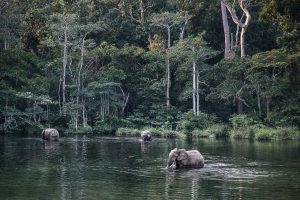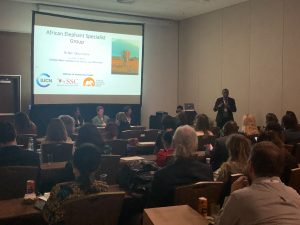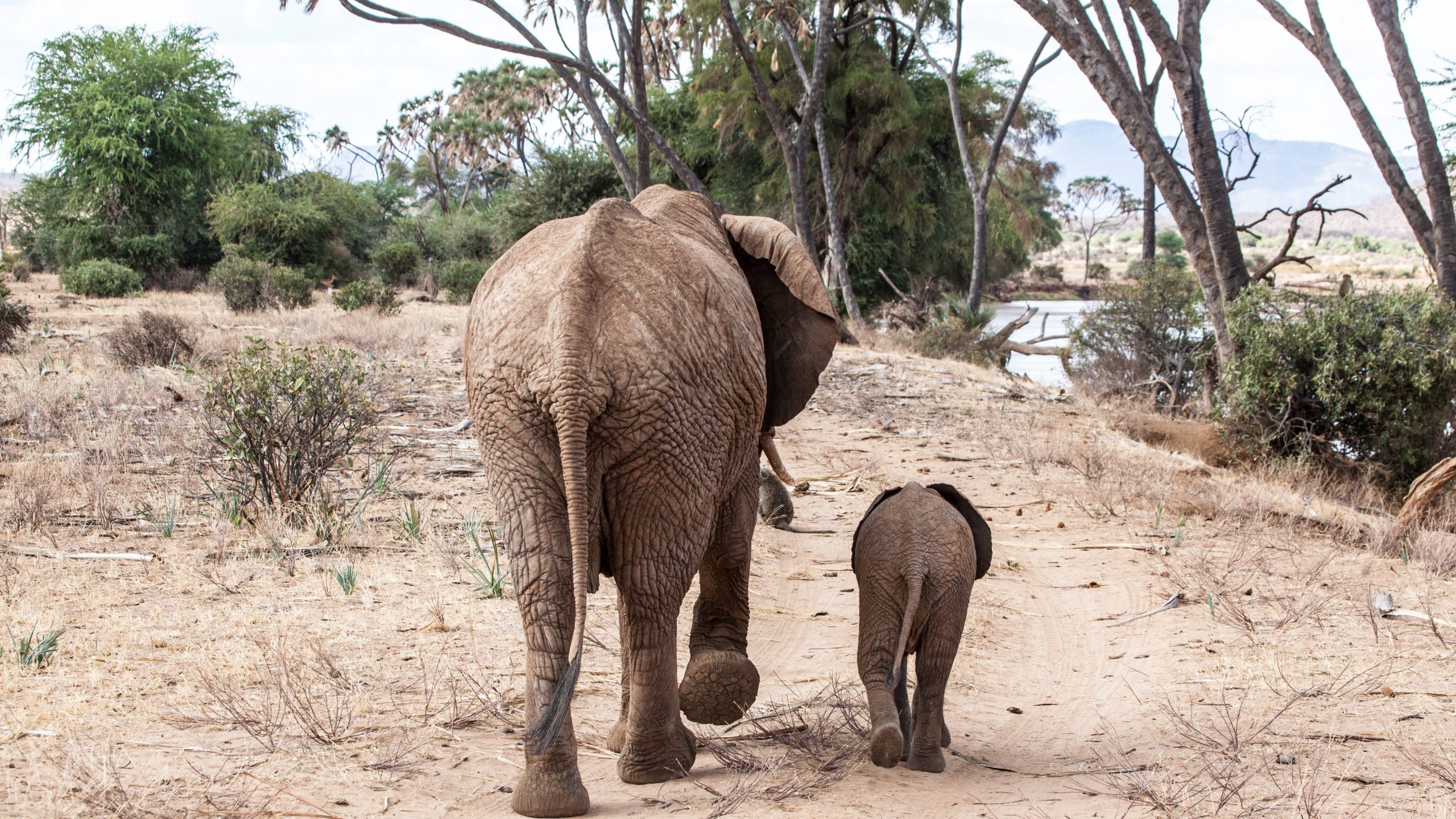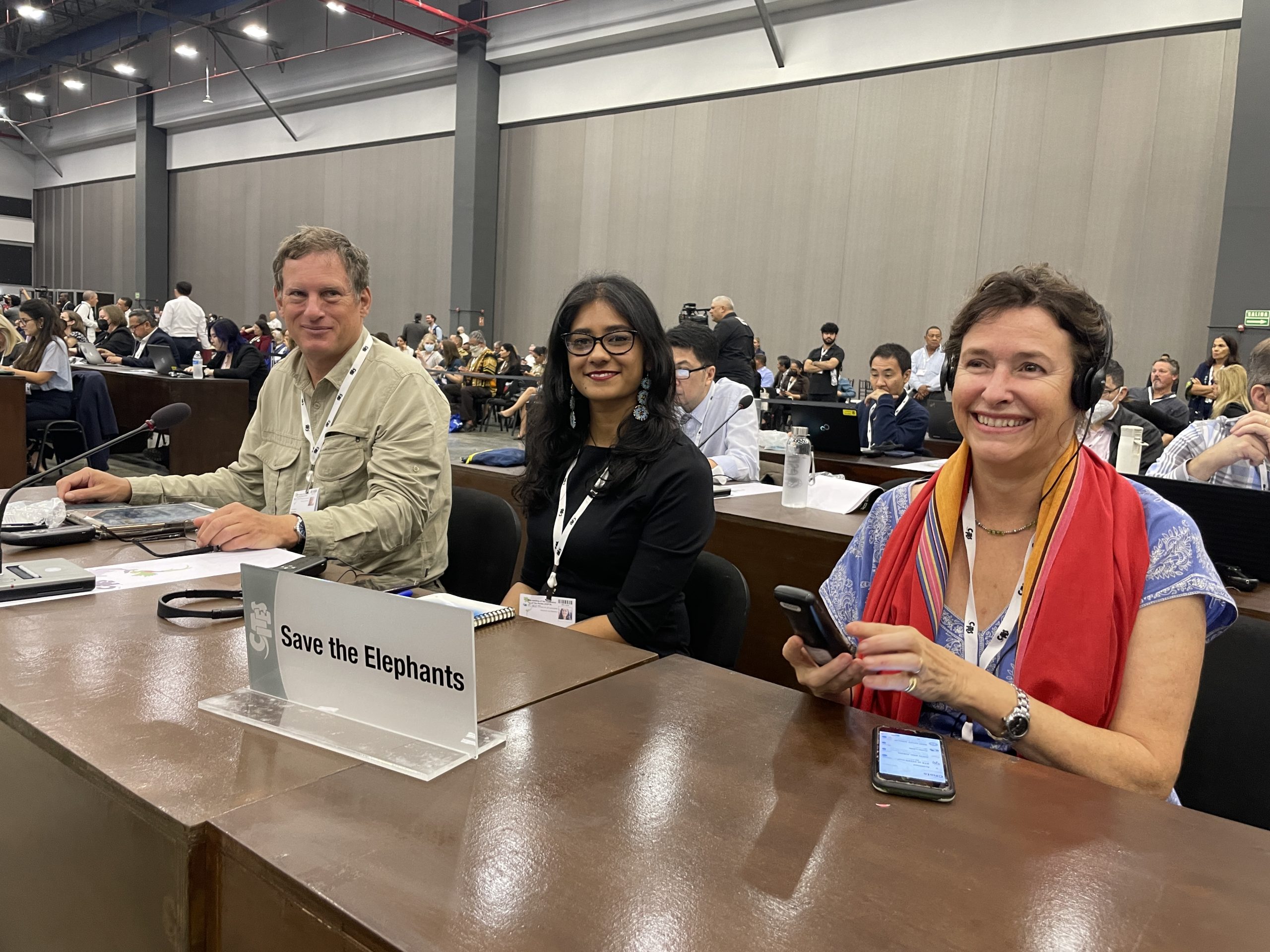The IUCN SSC African Elephant Specialist Group (AfESG) is a global network of over 95 technical experts dedicated to promoting long-term conservation of Africa’s two elephant species, the critically endangered African forest elephant (Loxodonta cyclotis) and the endangered African savannah elephant (Loxodonta africana) through their range.
Both species have been declining at continental level due to poaching for their ivory tusks, habitat degradation, the complexities of land use changes leading to challenges in human elephant co-existence. Yet these two keystone species provide invaluable ecological benefits for the forested and grassland landscapes that they inhabit, including seed dispersal, maintenance of savannah-forest mosaics, ground water availability and carbon sequestration (e.g., Berzaghi et al 2019) and socio-economic benefits in instances as well. As such, their conservation is more critical than ever but also complex given significant regional variation in elephant numbers, management, threats and benefits.

African forest elephants in Nouabale Ndoki National Park, the Republic of Congo © Scott Ramsay
More about the Specialist Group
The broad aim of the AfESG is to promote the long-term conservation of Africa’s elephants and generate science-led, data-driven assessments of the species across their range. Where possible, the AfESG also seeks to contribute to the mitigation of significant threats and the recovery of populations in decline. Through this communication and outreach, the AfESG also elevates awareness and appreciation of the natural and economic benefits that healthy, thriving elephant populations uniquely offer to many landscapes and people in Africa.
The AfESG provides technical expertise and advice to decision-makers, fills information gaps by generating robust, original science on the species and their threats and facilitate the development of conservation strategies, management plans, communication products and funding mechanisms with stakeholders at multiple scales. The AfESG produces an academic publication called Pachyderm, a peer-reviewed journal that was started in 1983 and is shared with the African Rhino Specialist Group (AfRSG) and the Asian Rhino Specialist Group (AsRSG). Pachyderm includes reports and articles of original research and fact-based information for stakeholders in Africa and all interested readers and is available online. The AfESG also curates the African Elephant Library (AEL), a comprehensive repository of articles, reports and other information on elephants dated from the early 1900’s tote present, and the African Elephant Database (AED), the most complete compilation of population monitoring data on two species, collected primarily via aerial and ground surveys of more than 400 sites in 37 African range countries spanning more than three decades.
Pachyderm, the AEL, the AED and the cutting-edge expertise of its members help establish the AfESG as the global authority on both African elephants, strengthening its ability to provide sound and timely advice on a range of conservation and management issues, including human-elephant conflict, population monitoring, transboundary conservation, species and hybrid identification, illegal trade in elephant products, ecosystem services and other benefits provided by each species.
The group has worked closely with CITES and CMS on Convention issues pertinent to African elephants over the years and continues to do so. In particular, the AfESG and its members have been involved in supporting the development and maintenance of the CITEs programme Monitoring the Illegal Killing of Elephants (MIKE) and the Elephant Trade and Information System (ETIS).

African Elephant Specialist Group co-chair, Dr Ben Okita-Ouma, giving a presentation at a side event at CITES © Festus Ihwagi
In addition, the AfESG assists in the organization, facilitation and technical preparation of the Range States Dialogues, which are instrumental in moving towards regional consensus on controversial elephant issues. In 2019, AfESG provided technical input for the revision of the African Elephant Action Plan which contains common strategic conservation objectives across range states for the conservation of African elephants.
The AfESG is committed to continuing to provide sound, interdisciplinary scientific information to aid in decision-making and action. The group strives to maintain its focus on conservation action on the ground and on capacity building in range states to manage both African forest and savannah elephant species, aware of the natural ecological benefits each species uniquely provides, and the challenges each faces.





